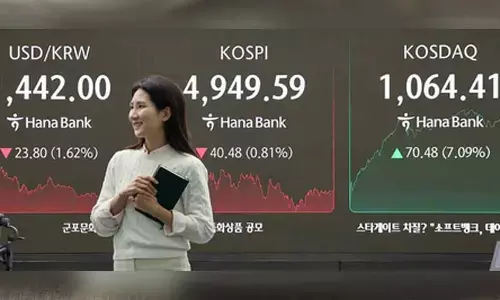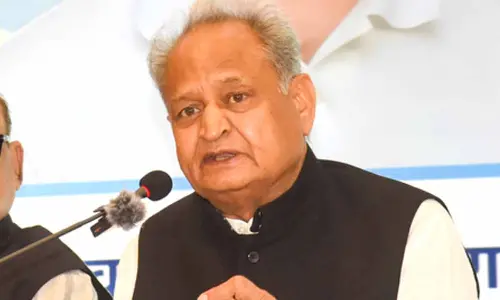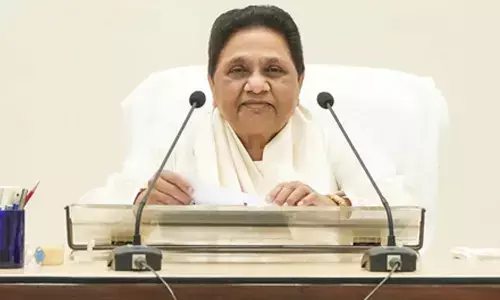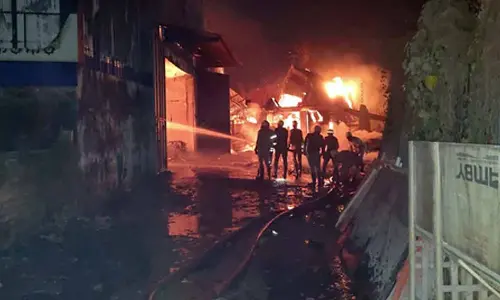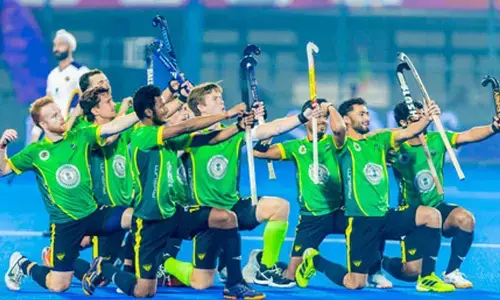A rounded view of the nation
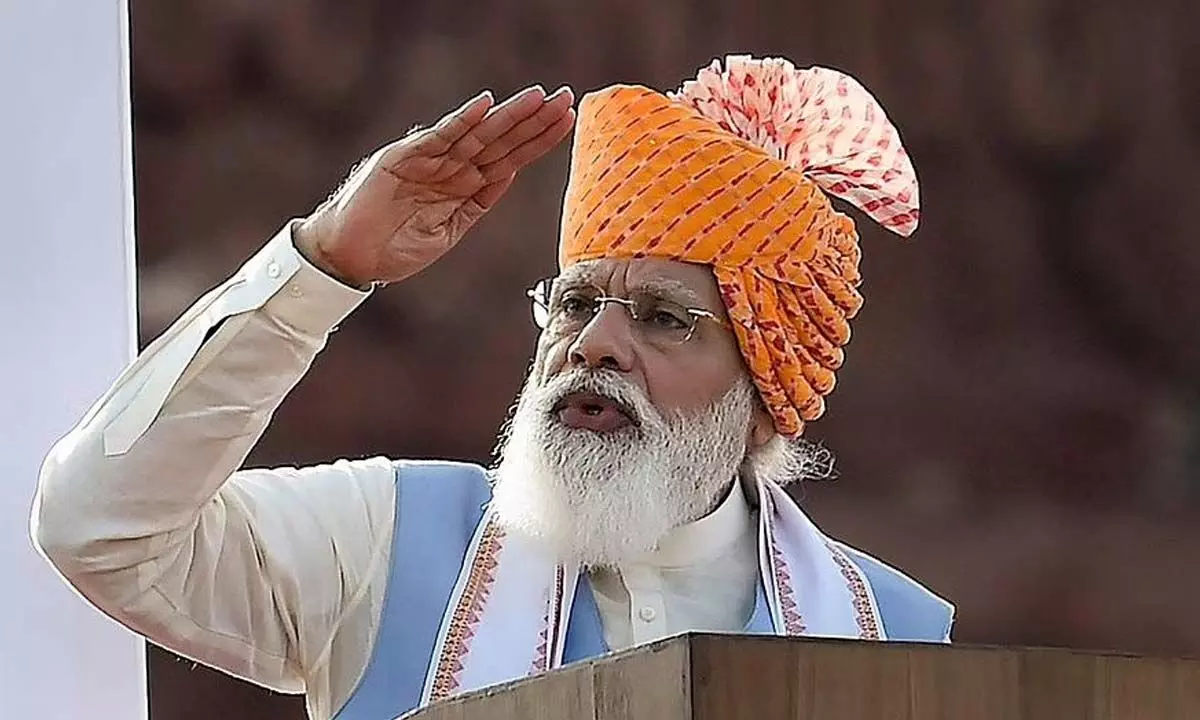
Prime Minister Narendra Modi
The I-Day address by the PM had the distinction of keeping internal politics away and focusing totally on India's forward looking mission and the points of reform that need to be considered for preserving a healthy national outlook
The I-Day address by the PM had the distinction of keeping internal politics away and focusing totally on India's forward looking mission and the points of reform that need to be considered for preserving a healthy national outlook. It was a remarkable framework of strategic directions specified by the Prime Minister in which a democratic, inclusive and progressive India would proceed in the times to come.
There is little doubt that Prime Minister Narendra Modi with his clean image and ability to drive the country's polity on the path of development through macro-level infrastructure build-up on one hand and emphasis on startups on the other, has earned his position as the tallest leader in the eyes of the people.
For the sceptics still wondering if India is a nation, Prime Minister Modi in this year's Independence Day speech defined – in his own inimitable style – the 'idea of India' by combining its past, present and the future and placed before the world what can be called India's national strategy of fostering security, development and integrity.
The address had the distinction of keeping internal politics away and focusing totally on India's forward looking mission and the points of reform that need to be considered for preserving a healthy national outlook. It was a remarkable framework of strategic directions specified by the Prime Minister in which a democratic, inclusive and progressive India would proceed in the times to come. The speech covered all major aspects of national life - position of India as a world power, development as well as future of the youth, cultural roots, participative role of the states in nation-building and importance of maintenance of internal order with special reference to crime against women.
It is worth recalling the thematic points of Modi's Red Fort address for these evidently represent the gist of his strategy of governance for the times ahead. He highlighted the aspirational character of Indian society marked by preponderance of youth and struck a note of optimism amidst the difficult situation of unemployment, by acknowledging that the youth have the right to demand a faster economic growth and better opportunities.
He had at the back of his mind the swiftness with which his government responded to the sudden Covid onslaught – a crisis of unprecedented scale – by focusing on vaccine research and production and later working out a 'bottom up' approach to economic recovery in which 'vocal for local' carrying India towards self-reliance became a brilliant way out of the economic dump that the pandemic had created.
India with its history of 'village economy' was attuned to sustaining the society on localised demand and supply even as it showed its sheer brain power in catching up with 'globalisation' – an upshot of the success of information technology revolution that had caused the transition of the world from industrial age to the age of information and knowledge economy.
Economic recovery still is work in progress but Prime Minister Modi gets the credit for leading the country by 'riding a crisis' and in the process putting India on the world map for handling the Covid onslaught successfully – with a rare political will. He reflected a confident optimism – that was well- placed - with regard to the future prospect of India.
A remarkable achievement of the Modi regime is the distinct mark that India reached - in a short span of time - in earning the recognition of the international community as an influencer of global geopolitics, because of its success not only in handling the Covid crisis, but also in pursuing a foreign and security policy that is totally independent, free of 'alignments' and driven by thoughts of world peace.
It was quite legitimate for Prime Minister Modi to say that India's goal is to work for a 'Vikasit Bharat' at a time when the country - in his words - has become 'a ray of hope for the world.' He urged all citizens - in that spirit - to focus on their own commitment to India's development. It was a befitting call for making the country great both from within as well as in the eyes of the world outside.
Presentation of a broad vision of this kind looked appropriate for an Independence Day address. The Prime Minister urged the citizens to advance with full conviction about a developed India, get rid of any sense of 'slavery' and take pride in the nation's history and heritage.
He commended 'diversity' and 'inclusiveness' as the great features of India's culture, but refrained from using the word 'secular' for good reasons. Introduced in the Preamble of the Indian Constitution by late Indira Gandhi when she was the Prime Minister, this adjective always raised controversies in the context of defining the 'idea of India' - often because it was politically interpreted as a marker of the 'special position' of the Muslim minority here.
Modi reminded all Indians that 'when we are committed to our roots, then only can we fly high'. While declaring that 'India is the mother of democracy,' he reiterated that 'diversity is its strength'. This diversity is not to be invoked for instigating separatism at home. The Prime Minister significantly mentioned the enlarged motto of 'Sabka Saath, Sabka Vikas, Sabka Vishwas' to highlight inclusivity.
It is in this context that Prime Minister Modi acknowledged from the ramparts of the Red Fort the contributions made to the cause of freedom by 'revolutionaries' who sacrificed their lives for it but were kept excluded from the historical accounts of the struggle for Independence advanced by the protagonists of the Congress-led freedom movement.
This anomaly needed an urgent correction. The Prime Minister mentioned Mahatma Gandhi, Pandit Jawaharlal Nehru, Sardar Vallabhbhai Patel, Netaji Subhas Chandra Bose, Rajendra Prasad, Lal Bahadur Shastri, Babasaheb Ambedkar, Vir Savarkar, Shyama Prasad Mukherjee, Nanaji Deshmukh, Deen Dayal Upadhyaya and Ram Manohar Lohia, among others, for their contributions.
He also recalled Mangal Pandey, Tantya Tope, Maharani Laxmi Bai and Begum Hazrat Mahal, leaders of the 1857 anti-British revolt looked upon as the 'First War of Independence', and went on to name Bhagat Singh, Sukhdev, Rajguru, Chandra Shekhar Azaad, Ram Prasad Bismil, Ashfaqulla Khan, Rani Chennamma, Virsa Munda and Rani Gaidinliu and saluted them all as the architects of free India.
Howsoever indirect, the Prime Minister's references to some key points of the internal situation were timely and effective. He identified the states with the Centre by stating that 'when our states grow, India grows' and urged the states to take to 'cooperative and competitive federalism'. He indirectly drew attention to the prevailing law and order scene with reference to crime against women – which is a direct responsibility of the states – by expressing his regret that 'respect for women who are an important pillar of India's growth' is not adequate.
This connects with his specific mention of women warriors who had fought against the British. In the context of law and order, this country must quickly move towards eliminating gangs indulging in trafficking of women and kidnapping of children on a priority basis and for this the Centre must take due cognisance of the continued failure of a state government and take recourse to a Constitutional remedy after administering two warnings with regard to the incidence of these crimes that have the potential of causing internal destabilisation.
Equally important was the Prime Minister's call that "we must rid the country of nepotistic thinking and push it towards a merit-based society." He declared that "corruption has to be fully eliminated" and implicitly put the current drive of the central agencies concerned in a perspective before the citizens at large.
Prime Minister Modi managed to keep his address above internal polity. In a way, he successfully used the important occasion to spell out his government's approach to the entire spectrum of governance as well as the strategy adopted by India in the spheres of economic growth, national security and international relations. The address was in Prime Minister's typical conversational style and was understood and absorbed by the common Indian and the strategic observers alike.
(The writer is a former Director of Intelligence Bureau. The views expressed are personal)









